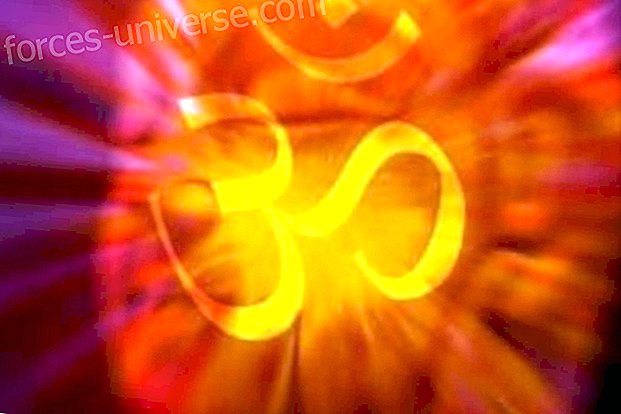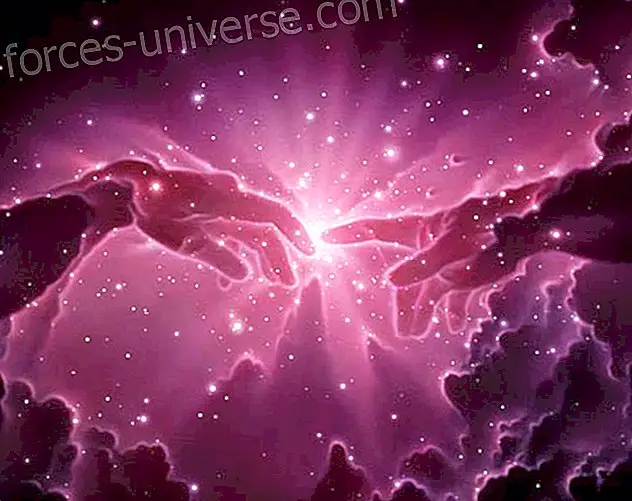 At the beginning of the last decade of the nineties, astronomers were determined to find out what the final destiny of the Universe would be. If it all started with a big bang, the Big Bang, from a single point that began to grow to the current dimensions, how fast does the Universe continue to expand today? And, above all, is the gravity of the billions of galaxies that we can see slowing that expansion? Could I even stop it? Brian Schmidt was the man (or one of the men) who managed to answer these questions. And he did it, on the threshold of the year 2000, with a sensational and unexpected discovery, one that would forever change the perception we have of the Universe in which we live.
At the beginning of the last decade of the nineties, astronomers were determined to find out what the final destiny of the Universe would be. If it all started with a big bang, the Big Bang, from a single point that began to grow to the current dimensions, how fast does the Universe continue to expand today? And, above all, is the gravity of the billions of galaxies that we can see slowing that expansion? Could I even stop it? Brian Schmidt was the man (or one of the men) who managed to answer these questions. And he did it, on the threshold of the year 2000, with a sensational and unexpected discovery, one that would forever change the perception we have of the Universe in which we live.
Indeed, Schmidt realized that, far from slowing down, the pace of universal expansion is accelerating . That is, the Universe we live in grows faster and faster, driven by an unknown force that Science, for lack of more details, has dubbed "dark energy . " This "accelerated expansion" makes the matter that contains the Universe (in the form of galaxies and stars) increasingly dispersed and distant from each other. In the end, within an unimaginably long period of time, with all the matter that exists scattered over enormous distances in a gigantic and dark space, the entire Universe will be extinguished forever. The finding earned Schmidt the 2011 Nobel Prize in Physics, which he shared with two other researchers, Adam Riess and Saúl Perlmutter. Yesterday, Schmidt was in Madrid to give a lecture on "The Accelerated Universe" at the BBVA Foundation. There he granted an interview to ABC.
- Your discovery has revealed a very sad future for the Universe ... Is it really the end so cold, lonely and dark?
- Yes. As we can see, the entire Universe is fading away, just like a hot gas that expands until it cools and dilutes completely. We can say that the Universe had an exciting and very active principle, the Big Bang, and that it will have a dark future of non-existence, in which it will return to nothing.
- Is there no alternative?
Some people enjoy the idea that we already know everything about the Universe. But it's not like that. For example, are there maybe other universes? Or maybe something important has escaped us so far? Something that revitalizes the Universe, give it back the strength it had ...? If that's really possible, if that's true, it's something we don't know ...
- Just two decades ago we thought we knew that the matter that forms the Universe was slowing down, thanks to its gravity, the expansion, and that this expansion could even come to a halt, to go backwards, starting a contraction stage ...
- Yes, but that has turned out not to be true. Precisely to verify it, in the nineties the total mass of the Universe began to be calculated, and what was found is that the matter we see, which forms the stars and galaxies, was barely 4.5 of the total ... another 25% is dark matter, which we cannot see or detect and the rest, almost 70%, something we call dark energy, which is precisely responsible for accelerated expansion.
- And what exactly is that dark energy?
- Actually, we don't know. But my concern as a scientist is that he behaves exactly like the cosmic constant predicted by Einstein, although in reality it is something very different. I think it is not the same because it is something that varies over time. It is more of a field associated with energy, more similar in its way of functioning to the Higgs tree and its field, but the difficulty here is that it may be impossible confirm this fact during the course of a human life, even of an entire civilization.
Then the existence of this dark energy is a factor to add to your previous example that the expanding Universe resembles a hot gas that expands, cools and dilutes We just don't know what the effect that dark energy exerts on the future of the expanding Universe.
The birth rate of stars is collapsing
It is correct. The only thing we can predict is that this effect moves away from Einstein's predictions. However, we, Humanity, are very ingenious, and it could be that in some other way we could come to understand what that dark energy is and how it works. For example, we are able to see how string theory works, and suddenly we see the force of gravity and Quantum Mechanics work together Perhaps we can do something similar to know how dark energy works. Sometimes unexpected things happen that suddenly make sense of everything. Who knows, although that moment has not yet come.
Currently stars are still being born and new galaxies are forming. Doesn't that give an idea of normality in the future of the Universe?
No, not at all. In fact, the birth rate of new stars is collapsing. Nothing to do with what was in other times of the past. Most of the things that have to happen in the Universe have already happened. For example, if we go back to when the Universe was 3, 000 million years old (today it is 13, 800) the number of new stars was higher by a factor of twenty than is currently given . Even most of the stars in our own galaxy formed then. It is true that even today stars are still being born, but at a rate, as I say, much lower. And that pace will continue to decrease in the future.
Why?
Because at the beginning, when our galaxy was formed and the stars it contains, there was a lot of gas available to do so (99% of the ordinary matter of the Universe, in fact, is hydrogen). But as the Universe continued to expand and matter moved away from each other, the amount of gas was decreasing, and in the not too distant future it will be completely over, with what that new stars will no longer be born.
- And what about the large clusters formed by hundreds or thousands of galaxies that, instead of moving away, approach each other? Are they just local phenomena of activity in a universe that dies?
- Those clusters, the ability of these large clusters to attract new members, is decreasing dramatically, again because of the expansion of the Universe. These clusters will continue to exist for a long time yet, but each time further from each other, until they are completely isolated and turn off one by one as they consume the material at their disposal. The large-scale structure of the Universe resembles that of a network, in which the nodes are the clusters of galaxies, but the expansion is stretching that network, breaking it and moving away each of the fragments. All observations made so far are consistent with this future.
- When he faced his results for the first time, which nobody expected, what was the first thing he thought?
- Well, the first thing I thought was that it was a mistake. And I spent long months checking everything to find that mistake. I was convinced that it could not be true. But when, with the passage of time, I convinced myself that there was no mistake, then I thought that perhaps I was missing some piece in the puzzle, something important and in what I had not repaired. The idea of a universe totally filled with a strange energy that was pushing it out was something difficult to digest.
- How long did it take to fully convince yourself of your results?
- Well, I realized that my observations were correct in 1998. But I was still worried that I was missing some key piece of information that would vary those results completely. However, two years later, in 2000, other teams reached the same conclusions, and confirmed that the Universe is indeed full of dark energy. When this happened, I breathed in relief. Because I was right. After that, hundreds of new experiments reconfirmed, again and again, that the expansion of the Universe is getting faster and faster.
- Is it possible to calculate when this final will occur?
- Within 500 million years, from Earth it will not be possible to distinguish a single galaxy. In fact, the galaxy closest to ours will then be the same distance as the most distant galaxies we can see today. Andromeda, our galactic neighbor, will have already merged with our own galaxy and both will form one. Within 500 million years, the closest galaxies will have a shift towards the red of ten, which is the farthest we can see today.
- And after that?
- Then, in the distant future, the redshift of these galaxies will tend to infinity and all of them will be technically unobservable, no matter what the technology is then ... They will simply be so far away and will continue to move away so quickly that it will be impossible to see them . From that moment, each galaxy or group of galaxies will only have their own forces, and they will be consumed little by little, until the fuel of the last star is exhausted and in a period of time that can last hundreds of billions of years. By then, the Universe will have become a really boring place.
- Are you a religious person?
- No. I'm not religious, but I'm not an atheist, at least not in the strict sense of the word. I describe myself as a militant agnostic, I have no reason to believe that there is a God, nor is it important to me. Therefore, if I don't know him and I don't need him either, it's something that doesn't concern me.
- And what about the millions of believers in the world?
«If you put God where you don't contradict Science, I have no problem»
- With regard to people who have faith, and if I place God in a place that does not contradict Science, I have no problem. Imagine for example that you believe that God created the Universe, that he created the Big Bang. I cannot say that you are wrong, because that is unprovable and therefore does not contradict what Science shows. Therefore, if faith is something very important for many people, and they believe in the existence of God, I feel no need to deny it for the mere fact that I cannot do it. But if you believe in God and want to impose that idea, then we will have a problem, because you will be forcing your values on me and others, and I believe that everyone should have their own ability to see the Universe as it is. Then I will be delighted, for example, to discuss with someone who believes that God created the Universe 4004 years before Christ, and I will try to explain why it was not so.
- However, what you have discovered is precisely how the end of the Universe will be, the end of all things ...
- Yes, the end of all things, but it is possible that God has some other hidden Universe ... And even if it were, it would not affect us, and therefore it is not something that matters to me either.
- Now that you mention it, the end of this Universe does not have to affect the evolution of other possible universes ...
- It's possible, but that's something we don't know yet. And in this, the only thing we cannot explain is the moment of the Big Bang, but everything that comes next. We can imagine that the Big Bang came from a quantum fluctuation, but then the question would be about the origin of that fluctuation, and if that is also answered there would always be a new question about what created what created the fluctuation, and so on. ...
- Do you think there is a “new physics” out there, still waiting to be discovered?
- I am very confident that it is so. Every time Humanity has begun to understand something, he has realized that he was wrong. On the other hand, we still do not understand dark energy, so the physics that explains dark energy is yet to be discovered, and I am convinced that it will be revolutionary and that it will completely change the way we see the Universe.
- Actually, we still know very little about the Universe ... Is it possible that we are wrong in everything?
- It is true that today most of the Universe is still to be explained. But it is also that what is being discovered does not nullify what was already known. Newton's laws, for example, remain very valid, despite all that came later. And the same goes for Einstein. That is why I believe that when dark matter and energy are explained, that does not mean that what we know now is not equally valid.
- What are you currently working on?
- In several fields. On the one hand, I continue to work on the expansion of the Universe and to understand to what extent Einstein's laws are reflected in nature. That is about 25% of my activity. On the other hand, I am also part of a project to search for planets around other solar systems. I work on a tracking program that aims at the stars and galaxies that are seen from the southern hemisphere (I live in Australia). The program is called Skymapper. And I also try to understand how the Universe came to be as it is today. For that, I try to find the oldest stars that exist, the first that formed in the early Universe and from which it all began. That is the question I would like to answer in the next ten or fifteen years.
- And how do you plan to do it?
«We look for relics of a Milky Way still in formation»
- One of the functions of the SkyMapper program is precisely to find out what are and where are the oldest stars in our galaxy, the Milky Way. We look for the fossil relics of a Milky Way still in formation. Thus we will understand how a series of scattered stars grouped together to end up forming what is now our galaxy. And I have to say that we are on the right track, and that we are very close to finishing a study, in the coming months, in which we will announce the discovery of the oldest stars in our galaxy.
- How old?
- These stars are about 13, 000 million years old, almost as much as the entire Universe and much more than the Milky Way. In fact, they are so old that they formed directly from the original Big Bang material.
- That is, they are first generation stars ...
- So far, nobody has yet found first-generation stars. And I still can't ensure that ours are. So far, the most we aspire to is to discover second generation stars, that is, those that were formed from the material of already dead stars of the first generation. And I think we have a star formed directly from the remains of a single star of the first generation, which is fascinating. But what we are trying to do is not find one, but many of these stars, enough to be able to understand, statistically, how galaxies formed. We are only at the beginning of this great project.
- How do you locate those stars?
- Stars that explode more violently produce waves of gamma radiation (GRB), one of the largest sources of energy in the entire Universe. We seek, again, the most distant explosions of this type that we can locate, within the very confines of the known Universe. When that light travels through the Universe, and reaches us, it brings us information about what the Universe was like at the time of that explosion. And we see, for example, that the expansion rate was lower in the past, which corroborates our results again. Essentially, we try to find out what the Universe was like in the same period when those first stars were born. In other words, we use gamma ray bursts to illuminate the ancient Universe.
- These are really complex projects to carry out ...
- Effectively. That is why I want to promote a close collaboration between the many countries that are studying the early Universe. The competition is good, but this task is something that must be tackled together. It is too large for a single team to do it alone.
- Would you like to add something to finish?
- Yes. That it is a privilege for me to be able to dedicate myself to astronomy. And one of the things I love about astronomy is its universality. I go to Africa, to Europe, to Asia ... No matter where, everyone understands this concept. And that is why I intend that in the near future all efforts in this field be carried out jointly. And it will be working together as we really understand the Universe that surrounds us and the place we occupy in it.
The Unknown Universe, by Brian Schmidt






